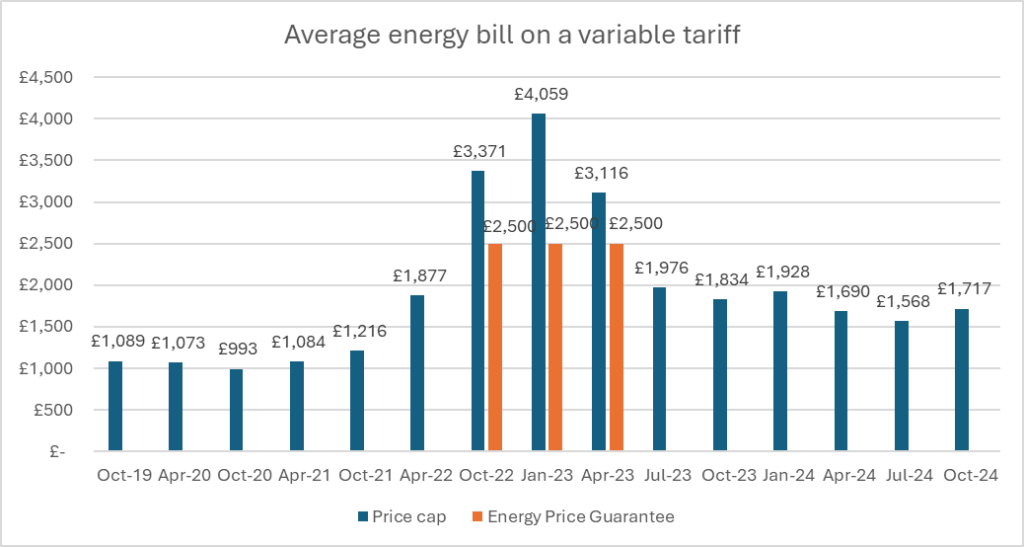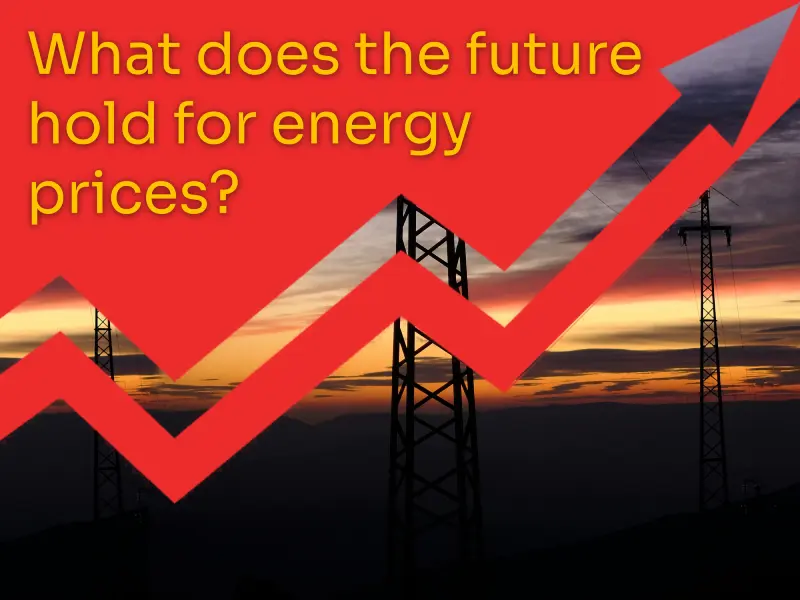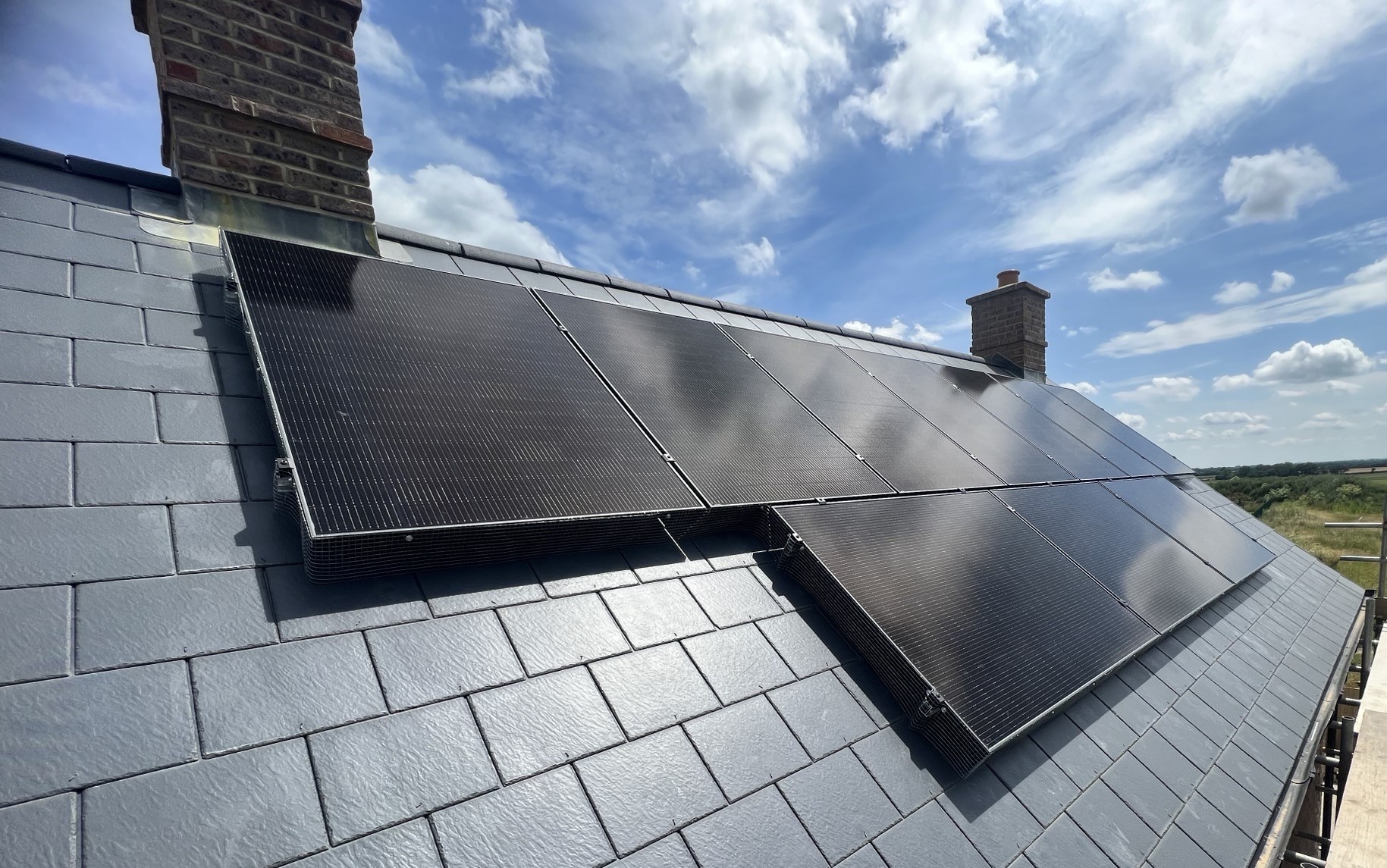Energy prices are set to rise again in January at the coldest and darkest part of the year, making it even harder for householders to pay their bills and heat their homes affordably.
On 1 January 2025, the energy price cap is expected to rise by a further 1% after increasing by 10% on 1 October. In comparison to the recent price rises 1% doesn’t seem that much and it would represent an increase of £19 on an average annual bill of £1,717. However, this pattern of high energy bills and increases is not helping UK households, with many struggling to pay the bills and having to choose to heat or eat.
What is the energy price cap?
The energy price cap is a mechanism that the government put in place to prevent energy prices from increasing above unfair levels and to protect consumers from ending up in fuel poverty. It is designed to factor in wholesale energy prices and prevent suppliers from making excessive profits by capping the unit price on household rates. The cap tends to mainly apply to the variable tariffs as these are the energy suppliers’ most expensive tariffs. Fixed tariffs may be available below the price cap, although it will depend on when you fixed your rates, how long for and whether the cap goes up or down to whether you stay above or below the price cap.
Since the energy price cap introduction, the energy market has become more volatile and prices have risen further than expected due to factors such as the war in the Ukraine. The graph below shows the historical changes in the energy price cap on an average energy bill in the UK, this is based on using 12,000kWh of gas and 2,900kWh of electricity per year. The orange lines represent the Energy Price Guarantee period where the government subsidised energy bills.

As you can see from this graph although we saw some decreases in energy costs from July 2023 it hasn’t been a continued decline and they have started to increase again. Energy prices have also not returned to previous levels pre-October 2022 and they have continued to stay high post the energy crisis.
What does the future hold for energy prices?
Predicting energy prices is challenging because they are influenced by numerous unpredictable and uncontrollable factors. There is no crystal ball we can use to predict the future with certainty, but experts anticipate that energy bills will remain high without any significant reductions.
The leading independent consultancy and research organization, Cornwall Insights, provides some of the most accurate analysis and they are predicting that we may see slight decreases in the following two price caps in April and June 2025 but this is likely to be only 1 or 2%. There may also be a slight increase in October 2025 so overall by this time next year we are likely to be paying about the same on our energy bills.
What can you do to reduce your energy bills?
The only significant ways you can reduce your energy bills are:
- Fixing your energy bills – finding a good energy price fix if there is one available to give you security but it may not necessarily save you money in the long term depending on which direction the energy prices go.
- Make your home more energy efficient and use less energy – insulate your home, use appliances less and upgrade to more energy efficient appliances and windows. For more energy saving tips visit our Energy Efficiency Day blog.
- Generate your own electricity – you could invest in solar PV and generate your own electricity for the next 30 years. This would mean you wouldn’t need to buy as much electricity from the grid and you could also store your electricity in a battery so you could maximise your use of it. Learn more about installing solar panels on your home and see how much you could save from installing solar panels with our solar calculator.





